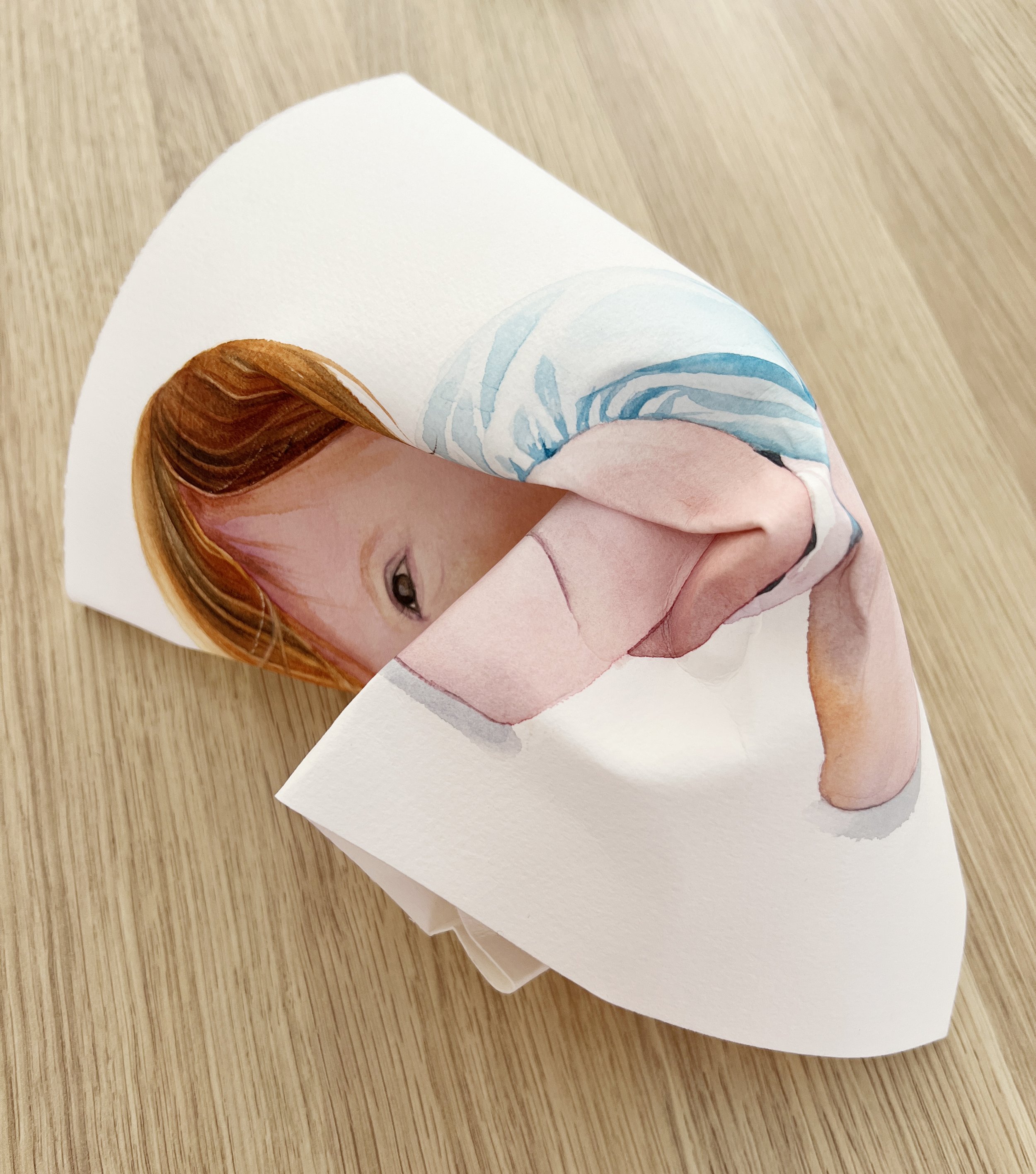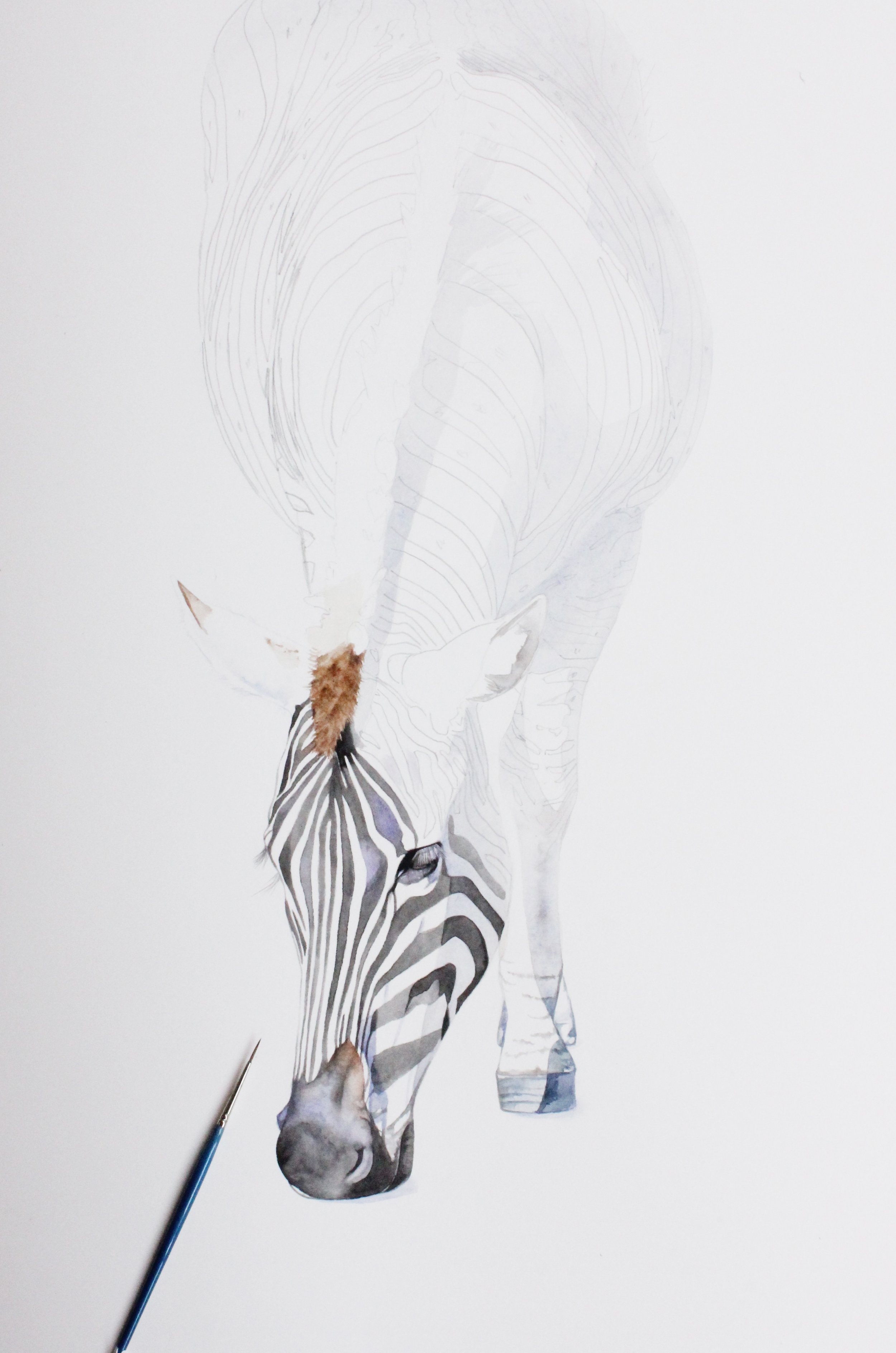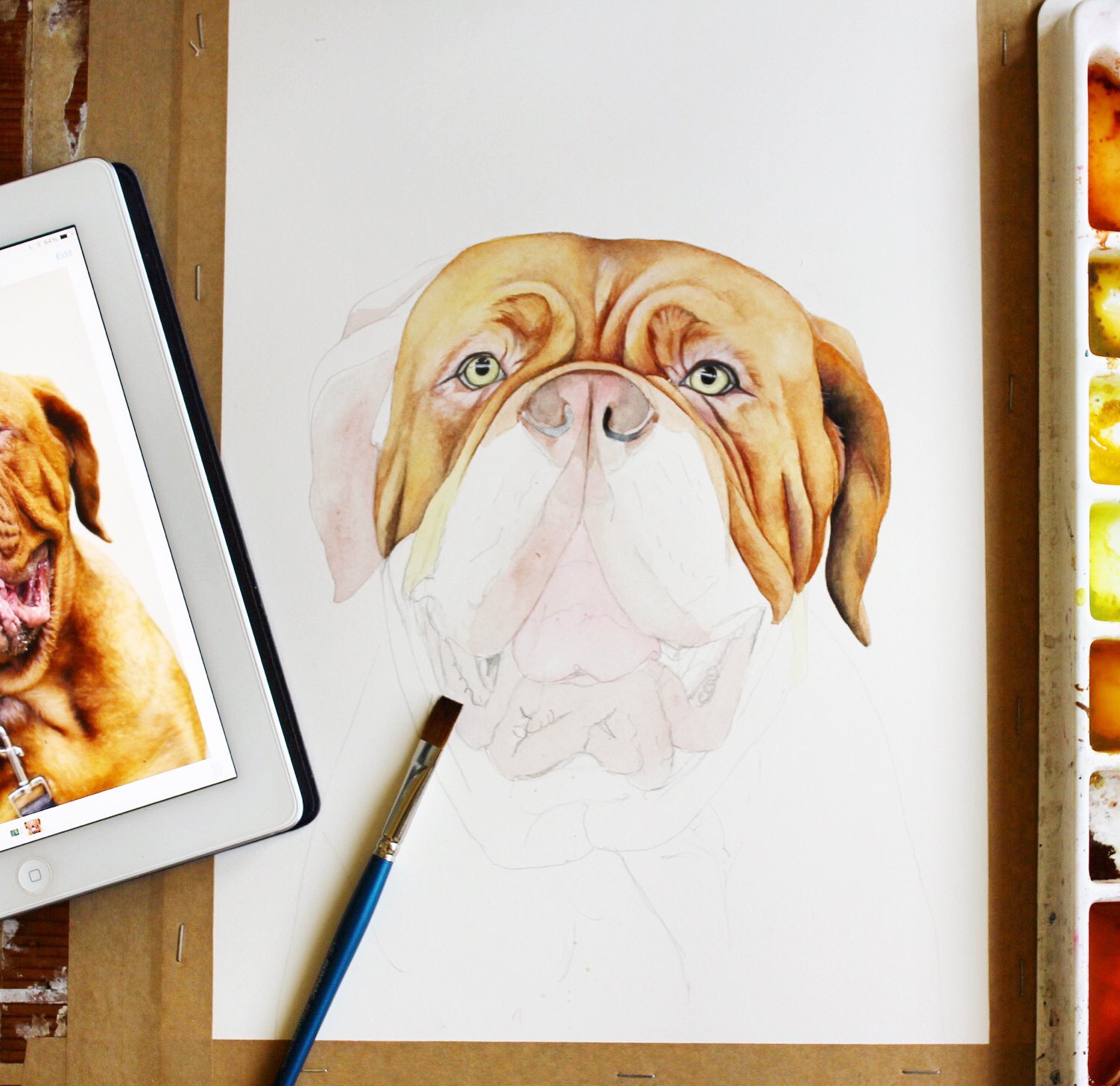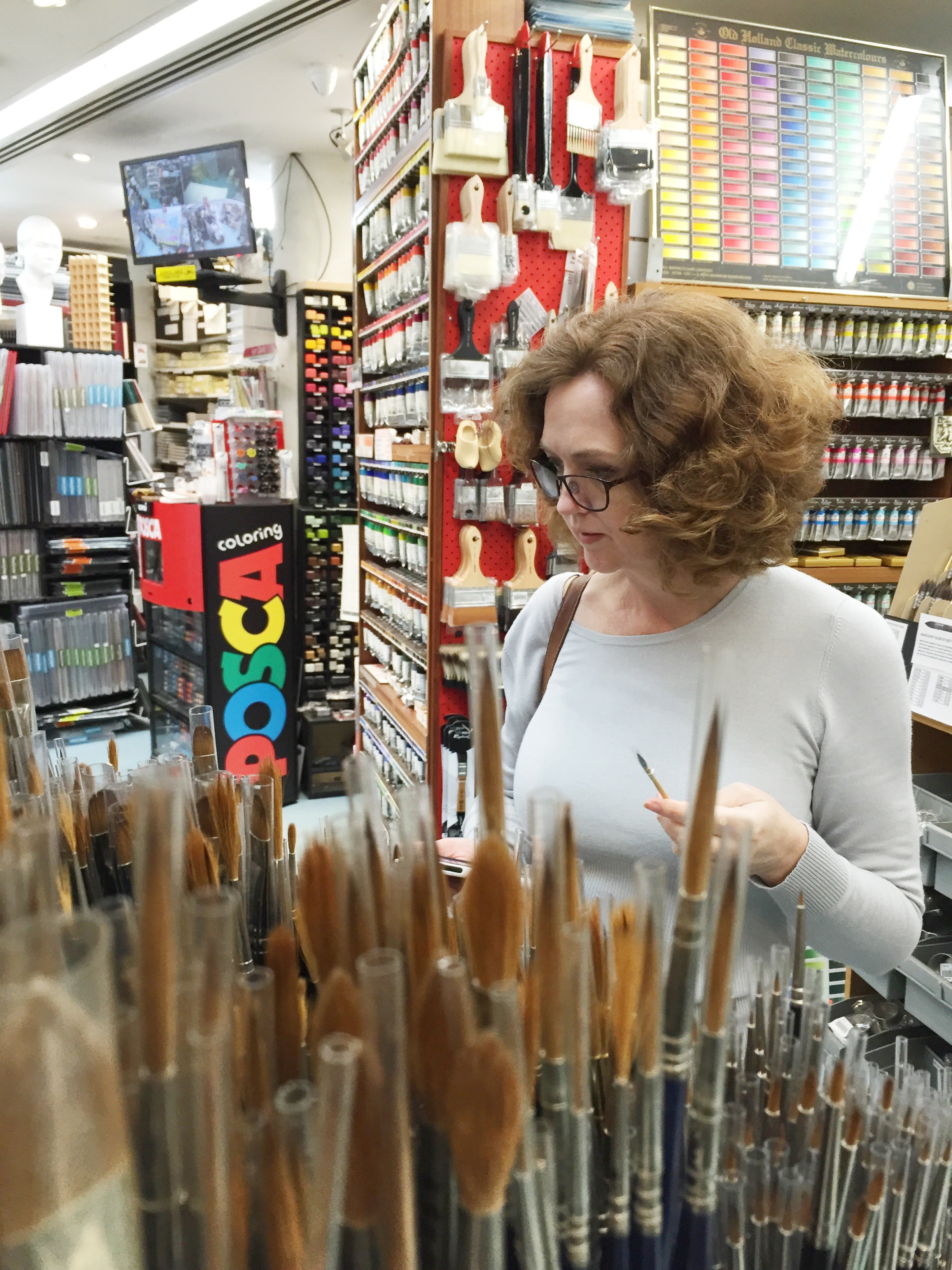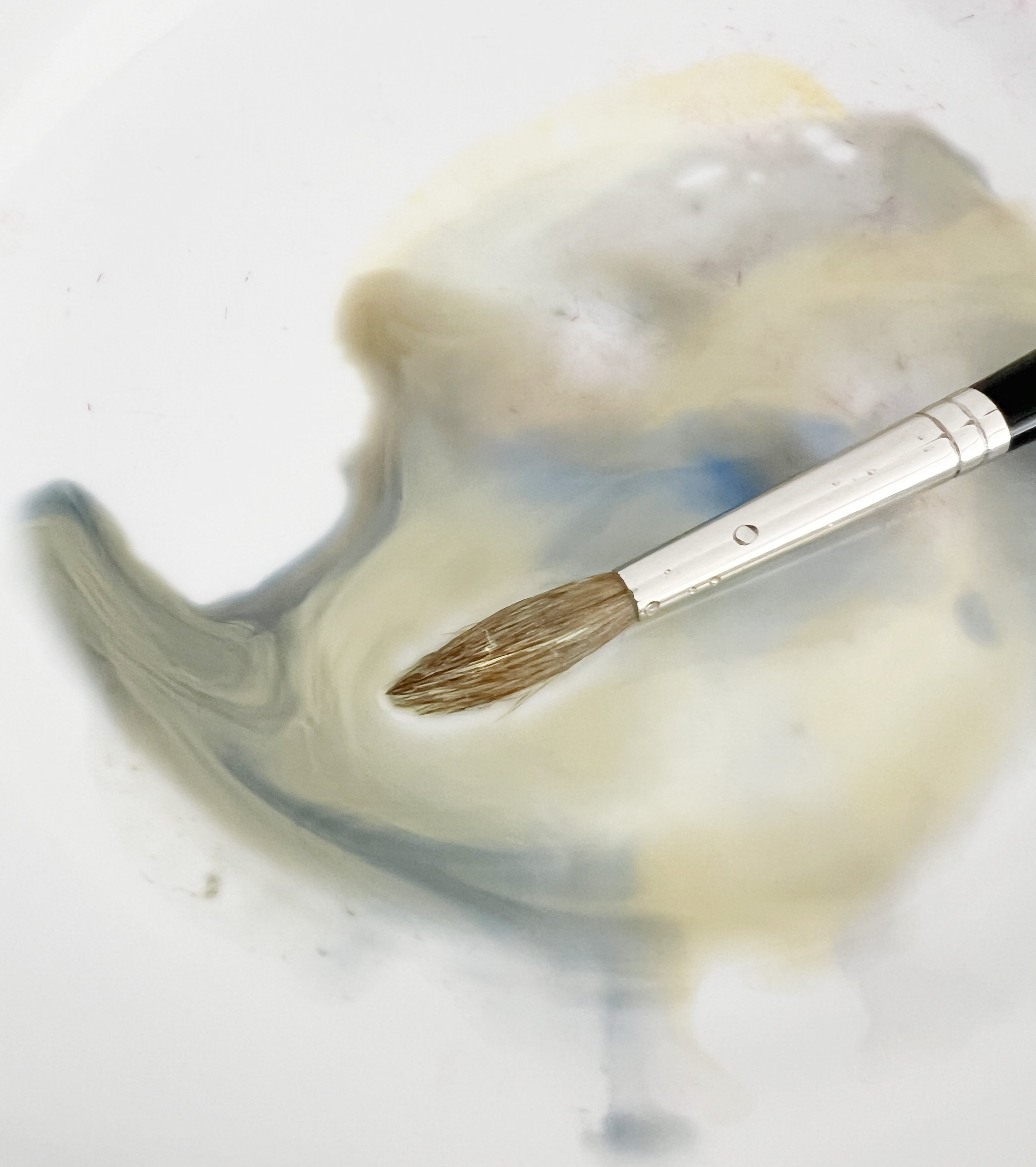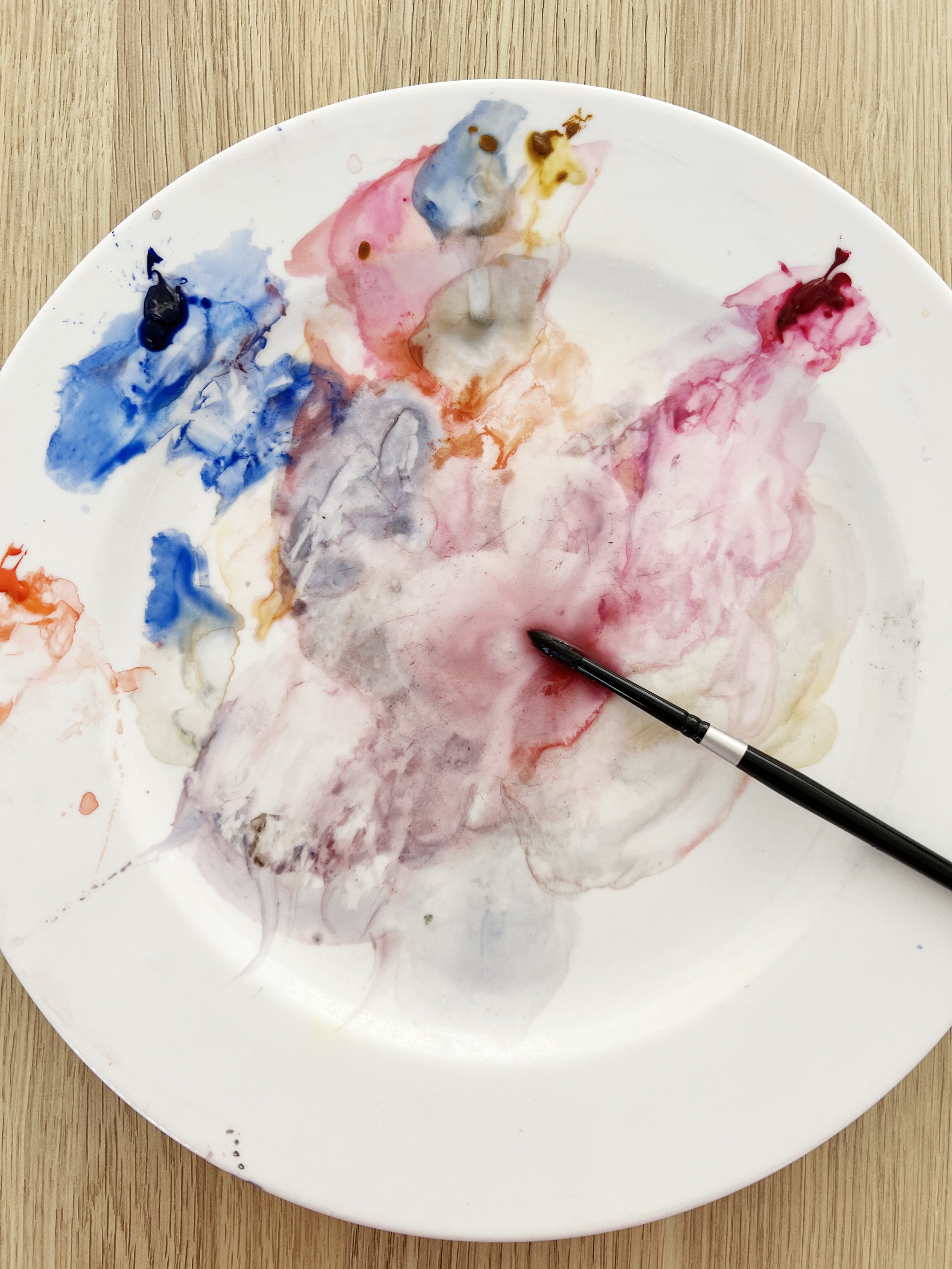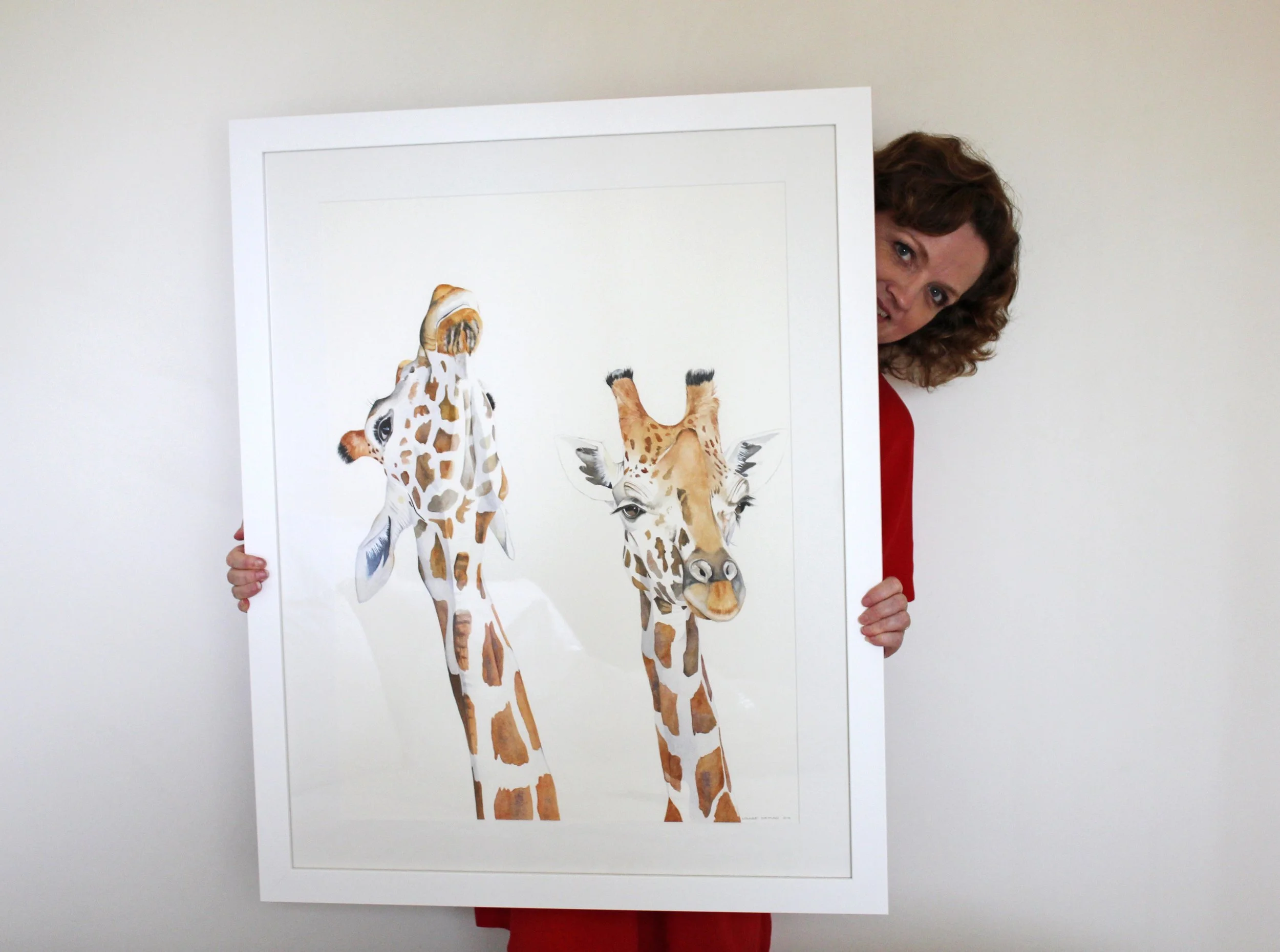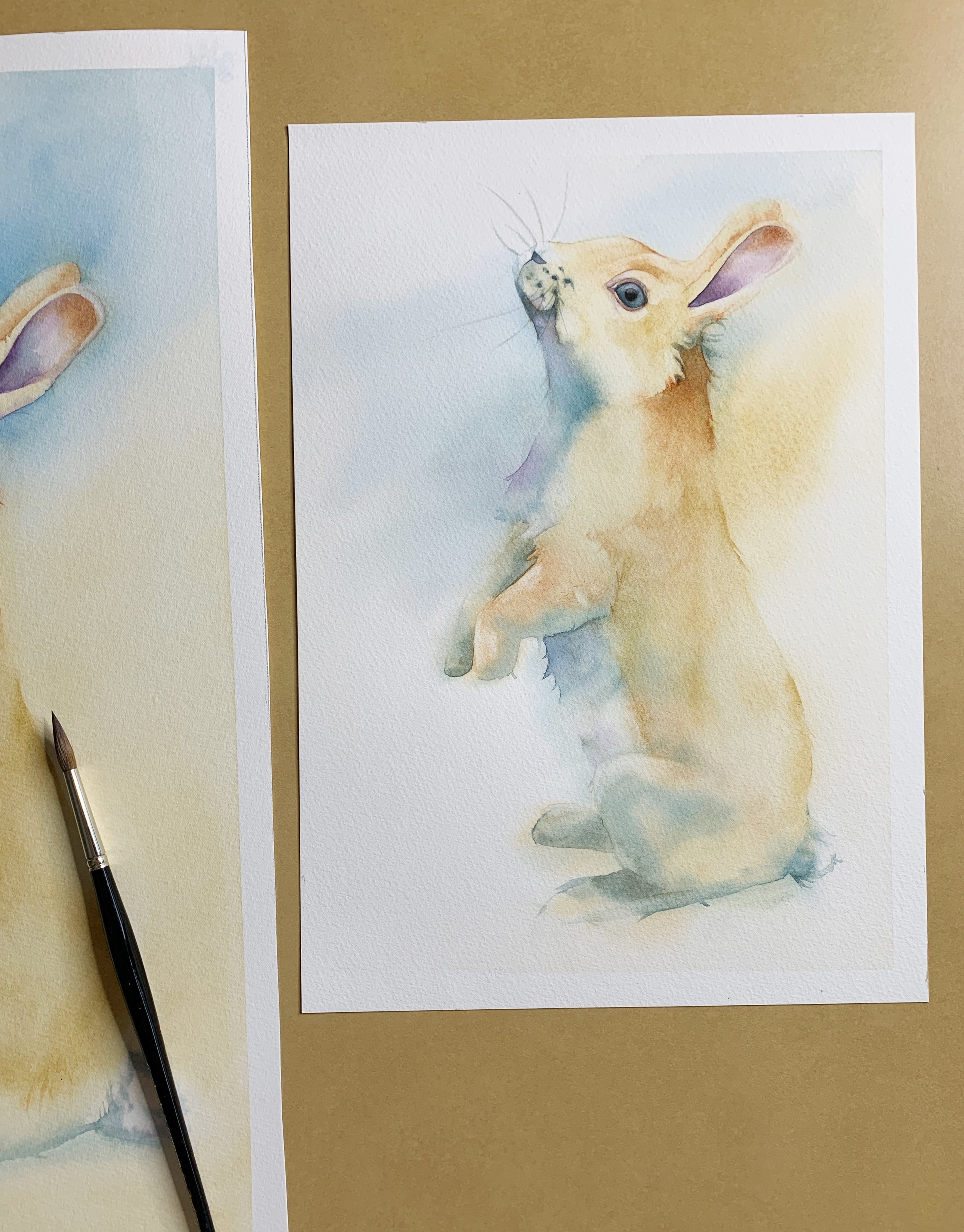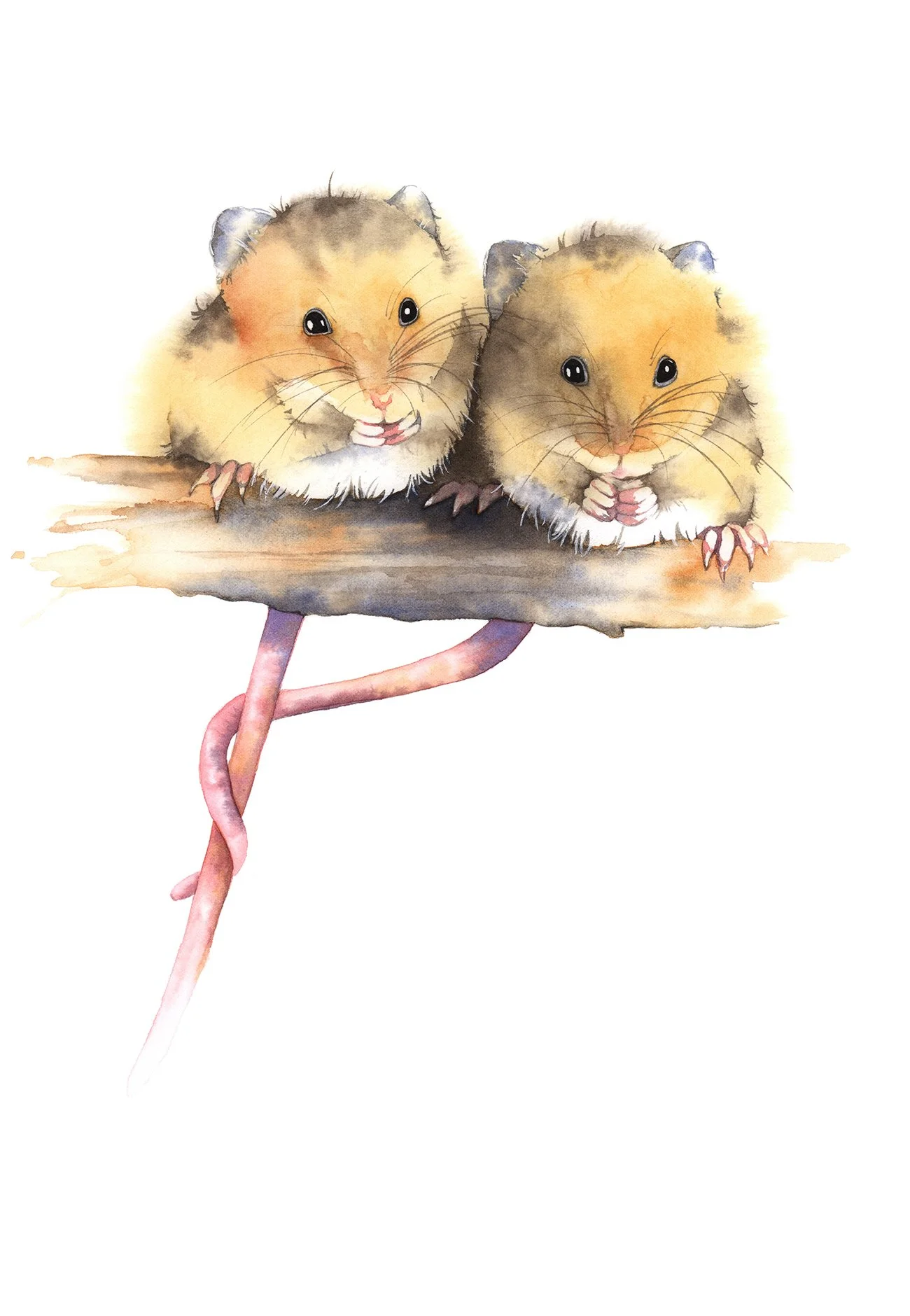Watercolour is the Hardest Medium to Paint With
21 Reasons Why
Welcome, brave souls, to the ultimate exercise in artistic adventuring: watercolour painting.
Before we dive into this lighthearted (and totally not serious) take on the wild world of watercolour, just know that this post is all in good fun! I love teaching this beautiful medium, but it comes with a few quirks that we’ll have some fun with here.
If you’ve ever wondered what it’s like to willingly enter a world of chaos, unpredictability, and sheer frustration, then you’ve come to the right place.
Watercolour isn’t just a medium; it’s an endurance test. If you’ve got a penchant for torture and love nothing more than watching your carefully crafted plans dissolve into a soggy mess, then watercolour is the “perfect” medium for you 😬😂.
Watercolour Crested Pigeons in Progress
1. The Clean-Up Conundrum
Watercolour Palette with Mixed Paints
Sure, watercolour doesn’t require harsh solvents, but that doesn’t mean it’s a clean affair. Thought watercolour would be tidy? Think again. Those splatters on your clothes, your table, and somehow, even your ceiling, will tell a different story.
And don’t get me started on the stains that mysteriously appear on your favourite shirt. Permanent art installation, anyone? If you wanted to redecorate your workspace, watercolour’s wet paint, wet brush, wet EVERYTHING has got you covered – literally.
2. The “Mistake Maker”
Watercolour is the ultimate “mistake maker” – one wrong move, and you’ve got a permanent reminder of your artistic failings. Smudge a bit of wet paint? That’s not a happy accident; it’s your new abstract masterpiece. Thought you were painting a landscape? Guess what, now it’s a modern art piece because that mountain just turned into a big ol’ blob.
Better get used to saying, “Oh, I meant to do that,” because with watercolour, improvisation isn’t just a skill – it’s a survival tactic.
Crumpled Watercolour Painting
3. Instant Panic with Every Drop
If you enjoy living on the edge, watercolour has you covered. One rogue drop of painting water can send your entire painting into a tailspin of panic. Accidentally drip painting water onto your almost-finished piece? Say goodbye to those crisp lines and hello to unplanned chaos.
It’s like the art equivalent of stepping on a piece of LEGO – sudden, unexpected, and excruciatingly painful. The only difference is, you can’t just toss the painting in the bin… or can you?
4. The Ultimate Test of Patience
Zebra Watercolour in Progress
Patience is a virtue, they say. But with watercolour, patience is more like a cruel joke. Want to layer colours? Hope you enjoy watching paint dry – literally. Because you cannot add a new layer unless the first layer is dry completely.
And if you’re the impatient type, well, watercolour will turn you into a Zen master out of sheer necessity. Or it’ll drive you absolutely mad. There’s no in-between. It’s a test of endurance, willpower, and your ability to resist hurling your brushes across the room.
Sure, you can speed up the drying time with a hair dryer—but crank it up too fast, and you’ll send that paint flying across the paper like it’s headed on a one-way trip to Timbuktu.
5. It’s Like Herding Water
Let’s be real: trying to control watercolour is like trying to keep a cat in a bathtub. You think you’re in charge, but really, you’re just along for the ride as the watercolour and paint water decide to spread, blend, and bleed wherever they darn well please.
Just when you think you’ve got that perfect wash going, it decides to make a run for the hills. Good luck keeping that under control. You might as well try herding water with your bare hands.
Dog Portrait Watercolour in Progress
6. Unpredictable & Uncooperative
Watercolour has a mind of its own, and it’s not interested in your carefully laid plans and practiced painting strokes. You might have a vision, but watercolour has a different agenda. It’s more of a “let’s see what happens” kind of medium. It's a water based medium - and water has its own mind.
Expect surprises – and not always the good kind. Watercolour doesn’t care about your artistic goals; it’s here to show you who’s boss. Spoiler alert: it’s not you.
7. Expensive Tastes
Sure, a little paint goes a long way, but if you think watercolour is cheap, think again. That “good paper” everyone talks about? Yeah, it doesn’t come cheap. Want to see your watercolours shine? Be prepared to shell out for the good stuff.
Cheap paper is like painting on a sponge – good luck with that. And let’s not even talk about how quickly you’ll go through those tiny tubes of paint. Your wallet might just start crying watercolour tears — which can be used as painting water.
8. The Eternal Quest for the Perfect Brush
Selecting Brushes at the Art Store
Finding the right brush is like searching for the Holy Grail – an eternal quest with no guarantees. That perfect medium round brush exists somewhere out there, but until then, you’ll be experimenting with a collection that rivals a small art store. Each brush promises greatness, but in reality, it’s just another tool for watercolour to laugh in your face as it does whatever it wants.
9. Fragile as a House of Cards
Congratulations, you’ve finished your watercolour masterpiece! But don’t celebrate just yet – it’s as fragile as a house of cards. A splash of water, a bend in the paper, and poof! There goes your work of art. It’s like building a house of cards in a windstorm. One wrong move and it’s all over. You thought you were done? Think again. Time to start all over and hope for the best.
10. The Mystery of Muddy Colours
Brush in Watercolour Mix
Mixing colours in watercolour painting can sometimes result in a muddy mess that looks more like something scraped off the bottom of a swamp. You start with the best intentions, but somehow, your vibrant colours merge into a murky brown disaster. It’s like watercolour’s way of saying, “Oh, you wanted a sunset? Here, have some mud instead.”
11. Paper Wars
Choosing the right watercolour paper is like navigating a minefield blindfolded. Hot press, cold press, smooth, rough - it’s an endless game where each type is out to sabotage your masterpiece. Pick wrong, and you’re one soggy brushstroke away from disaster.
It’s like rock, paper, scissors, but paper always wins - and you’re left wondering if you should’ve just taken up knitting instead.
12. The Dreaded Bloom
A Huge Bloom in a French Bulldog Watercolour in Progress
Think you’ve got your wash under control? Think again! That sneaky bloom will pop up out of nowhere and spread like a bad rumor, ruining your perfect gradient and your day. It’s the watercolour equivalent of a bad hair day – no matter what you do, it’s just going to keep getting worse.
13. The Puddle of Doom
Accidentally used a bit too much water? Congrats, your painting now has its own built-in lake. Say hello to the Puddle of Doom, where your colours mix and mingle in ways you never intended. It’s like trying to paint on a slip ’n slide – messy, unpredictable, and not nearly as fun as it sounds.
14. The Palette Predicament
My Watercolour Palette in Use
Remember when your mixing palette had neatly separated colours? Neither do we. Now it’s just a murky puddle of uncertainty, much like your artistic process. Mixing colours on a watercolour palette is like trying to keep your food from touching at Christmas dinner – nearly impossible, and a little bit of everything ends up blending together.
15. The Eraser That Isn’t
Made a mistake? Don’t even think about erasing it. Unlike pencils, watercolour doesn’t forgive or forget – it just laughs in your face as it permanently embeds your error. It’s like carving your mistakes in stone, but with more pigment and a lot more regret.
16. The Lightfastness Lottery
Spent hours on that perfect watercolour painting? Great! Just don’t hang it anywhere near a window unless you want it to disappear faster than your patience. Not all watercolours are created equal, and the wrong pigment choice means your masterpiece might fade into oblivion. It’s a game of chance, and the odds aren’t always in your favour.
17. The Soggy Surprise
Thought your paper was dry? Surprise! That subtle dampness turns your fine details into a waterlogged blur. It’s like painting on a sponge, but worse. Just when you think you’re ready for those crisp lines, watercolour pulls the rug out from under you with its sneaky, soggy ways.
18. The Traveling Pigment
Ever had that one rogue pigment that decides to take a vacation to the other side of your painting? Looking at you, ultramarine blue... Watercolour paint has its own way of spreading joy… just not where you want it.
It’s like watching your kid run across a freshly cleaned floor with muddy shoes – you can see it happening, but you’re powerless to stop it.
19. The Patience Test
You thought the watercolour paint was dry, but oh no, it’s just waiting for you to add another layer and ruin it. It’s a never-ending cycle of hope and despair.
Watercolour is the ultimate patience tester, forcing you to wait, only to surprise you with the need for yet another layer, and maybe another after that. It’s like the gift that keeps on giving – but in the most frustrating way possible.
20. The Technique Tangle
Rabbit in Watercolour
If you thought watercolour was just about slapping some paint on paper, think again!
This medium comes with an endless list of watercolour techniques that you need to master just to make your painting look halfway decent. Wet-on-wet, wet-on-dry, dry brushing, glazing, lifting – it’s like learning a new language, but with more chances to mess up.
Each watercolour technique you watch in endless painting tutorials promises magical results, but let’s be honest, half the time you’ll be staring at your paper wondering if you’re even doing it right. It’s like trying to juggle while riding a unicycle – impressive if you can pull it off, but mostly just a disaster waiting to happen.
21. The Watercolour Woes
Louise De Masi at Parkers Art Store
Just when you think you’ve mastered it, watercolour reminds you that you haven’t. It’s like the universe’s way of keeping you grounded – and slightly unhinged.
No matter how skilled you become, or how often you are practicing watercolours, watercolour has a knack for humbling even the most experienced artists. It’s the art world’s version of a reality check, served with a side of “better luck next time.”
So, why is watercolour the worst medium? Because it’s unpredictable, uncooperative, and downright unforgiving. It requires patience, persistence, and a willingness to embrace chaos.
And yet, despite all these “flaws,” we still keep coming back to it. Maybe because deep down, we all love a challenge – or maybe we’re just a little bit crazy. So, if you’re brave enough to tackle watercolour painting, welcome to the club.
It's a fun ride - just don’t say we didn’t warn you!
Disclaimer
Before you start packing away your paints, let me just say that this post is all in good fun! Despite all the cheeky complaints, I absolutely love watercolour and wouldn’t trade it for any other medium. It’s true that watercolour can be challenging, but that’s also what makes it so rewarding.
And guess what?
I’ve got tons of useful tips, tricks, and tutorials to help you master the medium, no matter where you are on your artistic journey. So, don’t let the frustrations get you down – with a little patience and practice, you’ll be creating beautiful watercolours in no time.
Happy painting!


